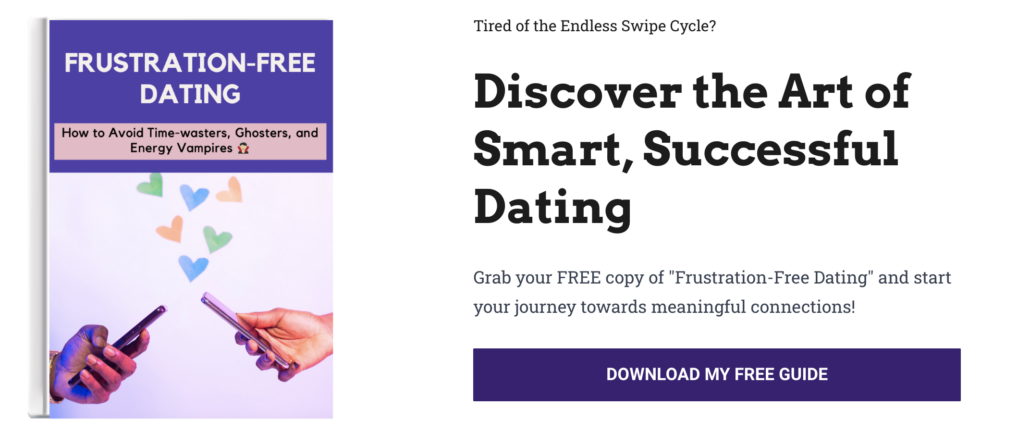Google Sleuthing & Elephant in the Room
From West Elm Caleb to The Tinder Swindler to Kim and Kanye we’ve got digital safety and online etiquette on the brain. Damona mentions one study that predicted that if Cyber Crime continues at its current rate of growth, it’ll cost 10.5 Trillion dollars globally by 2025.
This isn’t to scare you, because a lot of these scams, crimes, and sticky situations can be avoided if you know the signs to look for. So today, Burton Kelso will tell us how to stay protected in our search for love and in our relationships.
DATING DISH (2:33)
(2:33) Is Grimes and Elon Musk’s relationship the wave of the future?:
According to our friends at Metro UK, Grimes and Elon Musk’s fluid relationship is joining the hall of fame for unconventional celebrity romances (including Dolly Parton to Will Smith and Jada Pinkett Smith).
If you haven’t heard, the couple *secretly* welcomed a baby together in December 2021 via surrogate, even though they had officially separated that September. In a recent interview with Vanity Fair following the announcement of their new child, Grimes then said that they were maybe kind of together, like he was her boyfriend she guesses? But they don’t live together and they don’t follow a traditional relationship model.
Not only is it becoming more and more common for modern-day couples to edge away from stereotypical relationship norms, but it’s also becoming increasingly visible in celebrity relationships as well. Which, all in all, is kind of an awesome thing! If we are able to be more flexible in our expectations of what a healthy relationship looks like, then this widens the bracket for people to feel more content in their own relationships, and not have their happiness be dependent on cultural validation.
So maybe it’s time for us to start looking towards the celebrity couples and role models in our lives that resemble the kind of relationship we want, not the one we think we should have.
(5:55) Vulnerability is the new black: Well it’s official – Pure Wow confirmed in this recent article that vulnerability may be the new foreplay. The article starts with an anecdote from the author who had a very honest groundbreaking conversation with her partner. And through her partner’s vulnerability, she actually found herself feeling connected and… maybe a little turned on?
Award winning somatic sexologist, Jaiya, elaborated on this – she says that vulnerability is a powerful ingredient to creating alignment between two people who wish to get their true desires fulfilled and their needs met. But basically, it’s a way of exposing the most authentic you.
So how do we even open the door to be vulnerable? Well, Jaiya says to gauge your partner’s willingness and responsiveness when you choose to be vulnerable. This will also vary depending on how serious your relationship is. If you’ve just started dating, try to avoid any kind of emotional dumping – give them a little appetizer of the relationship to hang on to and be invested in before you hit him with the hard stuff. Additionally, in the early relationship stages, try to allow a ratio of making sure that you’re both sharing, and then listening to the other. If there’s a reciprocal share, then you know you’re both getting to a place of mutual vulnerability and authenticity.
A lot of times when we go to vulnerability, our instinct can be to fix something. But this article really shows that it’s the act of vulnerability – of just the share – that can be really bonding for two people. Once you get into the relationship, it triggers a whole other series of emotions and levels of connection. And according to another study mentioned in the article, researchers found that oxytocin is released into our bloodstream whenever we experience true and authentic vulnerability (that’s the same chemical that’s essential to arousal). So although it can definitely be scary to be vulnerable, the payoff is evidently greater than we thought.
BURTON KELSO (11:43)
Damona is here with tech expert, TV personality, speaker, and entrepreneur Burton Kelso. Burton is currently the Chief Tech Expert of the award-winning tech service company Integral, based in Kansas City. He is regularly featured on local ABC, NBC, CBS & FOX morning shows, speaking about internet safety.
Burton’s passion is to help people make sense of, and get the most use out of, the digital world they live in.
(13:16) Hit us with some dating safety: It seems like we’re living in a period right now where digital romance scams are on the rise (although part of this may just be Tinder swindler hype). Regardless, it’s never a bad idea to brush up on our online dating safety. Burton says that one of the main improvements in online safety is the existence of live video. In the past, if you wanted to see what someone looked like, you just had to trust that the glamor shot they sent you was actually what they looked like (and maybe there wasn’t as much of an instinct to question that they would be lying).
Nowadays online dating creates “watering holes” for people looking for connection, and so scammers are more likely to be on dating apps because that’s where the bodies are. But Damona confirms that although our access to potential scams has widened, our arsenal of tools to combat scamming has grown even more so, i.e. the ability to Facetime, researching their identity on the internet.
(15:18) Avoid getting socially engineered: Burton gets right down to the facts – he says that if you get into a relationship online, and your partner starts asking you for money or gifts soon after, that’s a red flag (especially large amounts of money upfront). Another red flag is if you read something they’ve texted you, and it seems vague enough that it could have been sent to anyone, there is a likelihood they could have copy-pasted the message to multiple people. Burton adds, “it’s so easy to do this, and they can carry on multiple conversations and have multiple people that they’re grooming at the same time. And technology just makes it so easy. You can do it from a computer, you can do it from a smartphone, so you can be anywhere and just send whatever you want, whenever you want.”
Damona brings up a concept Burton has mentioned before, which is how scammers are able to “socially engineer” their subjects. Basically, social engineering is when a scammer takes a look at a situation or person and finds out what their weak spots are. And with social media allowing us to post our thoughts and emotions online daily, it doesn’t take long for a scammer to figure out what they can say to peak your interest. A common symptom of this is if the person you’re talking to makes you feel extremely special, like you’re the only one for them. Damona concludes that “people like to blame the dating apps, but it’s really the communication and that digital communication. Everybody wanting to move to text, wanting it to be more efficient, that has pushed us in this direction.”
(19:16) What’s up with your digital hygiene?: Let’s clarify – what are the precautions we should be taking online to avoid getting socially engineered by scammers? “The best thing to do is to use common sense and slow your roll, slow down when you’re in these online relationships. Because usually, in about six months, someone’s going to reveal who they are. We can only fake it for so long.” Another red flag Burton has clocked is if someone did not want to meet face to face in a safe location. This is a pretty reasonable request (especially as a woman), so if there is resistance in meeting for the first time in a way that’s comfortable for you, then there’s probably something going on with that person that you don’t need to deal with.
So what information should we avoid putting onto the internet altogether? Damona points out how she never “checks in” on any of the apps (i.e. attaching your location to a post you make, or updating the check-in feature on Facebook). Burton proposes avoiding giving out your real cell phone number when possible, because there is a way that your partner could gain access to your service provider and hack into your voicemail (if they become ambitious enough). Instead, Burton suggests getting a number with WhatsApp or Google Voice to hand out to people that you’re dating. That way if they become a nuisance, you can change your number within the app. Lastly, if you are nervous about your information being too public, go to your Google preferences, and indicate that you don’t want your information shared via Google. Be sure to turn off some of those personal-data sharing features within your Google or Microsoft account.
(26:39) Internet sleuthing 101: Now that we know how to spot scammer red flags, how can we fact-check our suspicions? Burton remarks that Google is a good and very basic place to start if you want to become an internet sleuth. In addition, everyone’s on social media and even more people are on LinkedIn, which often gets lost in the shuffle as a resource. “If someone is employed they’re going to have a LinkedIn profile, because they want to keep their options open. Maybe they’re an entrepreneur and they want to connect with more people. So I definitely would check on both Facebook, and of course, LinkedIn. LinkedIn has got about 850 million users now – they have more users than Tik Tok.” Damona mentions that if they’re not on LinkedIn themselves and they are part of a business or corporation, it’s bound to have a website. Or if they’re on the board of some kind of charity, the website will often have a list of all the board members and essential persons.
But we couldn’t talk about sleuthing without mentioning the unsung hero of fact-checking – Google Image search. This is where you can drag and drop a photo from online into the Google search bar, and Google will then scour the internet for all instances in which that photo pops up. “Even on social media, you want to make sure someone isn’t using a headshot from Pixabayor Wix or Squarespace, that they haven’t used just some random dude that they posted on their social media platform.” If you want to do an image search, go to the main page of Google and at the top, click the little tab that says “images.” And Damona says to make sure that the photo you use is taken directly from the website or profile, screenshots will not work.
(31:32) Beware of airtags: Airtags (or smart tags, for Samsung users) have been giving everyone a spook lately, so let’s nail down exactly what they are and how to avoid them. Basically, airtags are a tracking device keychain created by Apple to act as a key finder to help find lost items. But unfortunately, scammers have been using air tags and smart tags to track people by slipping them into an individual’s purse or pocket without them knowing. Sometimes, scammers will actually attach airtags to your car. So if a notification pops up on your device that says there’s an unknown airtag or smart tag nearby, definitely pay attention to the alert and disable its access. Damona does point out the bright side of airtags, which is that you can use these so your family and friends can keep track of your location, and even as a safety precaution the next time you go out on a date.
Check out more of Burton’s advice at https://www.burtonkelso.com/ and be sure to follow him on all the socials @BurtonKelso.
DEAR DAMONA (36:22)
Submit your questions on Instagram, Twitter, or Facebook and hear our answers live on the show! Here’s what our listeners asked about this week:
- IG Message from Maria – Dear Damona, I chose to only filter in partners who don’t drink alcohol or only drink sometimes. I’ve been talking to a woman who seems lovely, has done some inner work, and has come out of an abusive/toxic relationship last may. She has on her profile that she drinks sometimes, yet she messaged me late the other day saying that she was just out of her ‘little bar job to help her friend out.’ Alarm bells went off inside, and I asked the next day ‘when you say you drink sometimes, what does that mean? As I’m looking for someone who preferably doesn’t drink or drinks occasionally.’ She didn’t reply to this specific message. I said again “I asked you this question and you didn’t answer me, I just want to make sure that we’re aligned with each other’s values’ and she didn’t reply again, and said that the conversation wasn’t feeling good and we briefly cut contact. We both decided to carry on talking, yet I feel that there’s an elephant in the room now. Please advise.
- Email from J – What is a kind and graceful way to end a relationship if you decide it isn’t working out? I am terrible at ending relationships and I often end up letting things linger way past their expiration date. I often tell myself, “He’s not so bad. He’s a nice guy.” But deep down I know that it isn’t going to work out. This year I’m focused on creating better boundaries, so I want to learn how to be better at this skill.
DAMONA’S DEALS
- Download the OkCupid Dating App for free today!
- Click here to try Damona’s free First Date Starter Kit!












